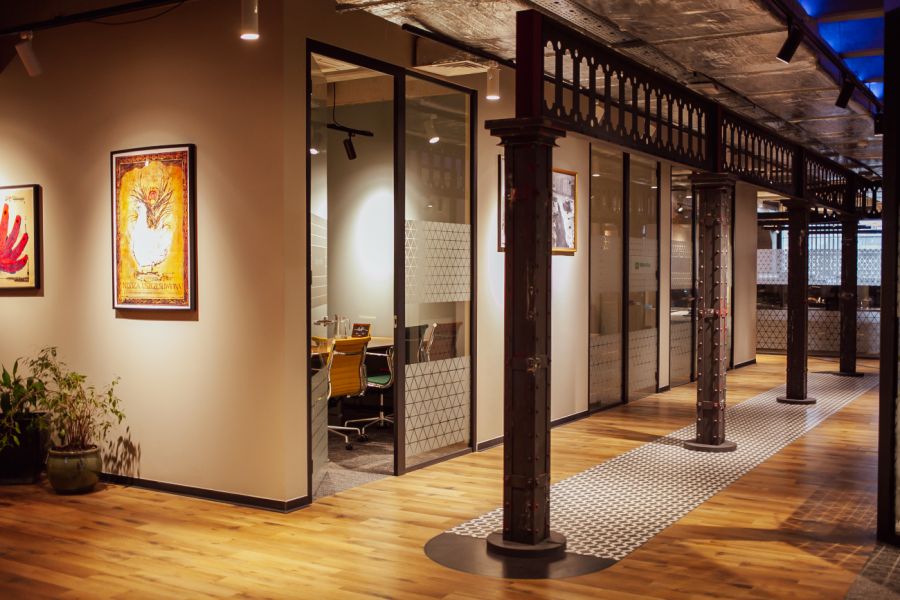Creating a positive difference in the world

An interview with Andreas Flodstrom, Founder and CEO of Beetroot
Wiktor Doktór, Pro Progressio: Beetroot, a company you have set up in Sweden, is going to have 10th anniversary in 2022. What were the beginnings of your business and why “beetroot” is the name of it?
Andreas Flodstrom, Beetroot: While Beetroot was established in 2012, its story goes back to my university years. Back at the time, I was working on my Master's Thesis for Chalmers School of Entrepreneurship, dedicated to assessing IT outsourcing locations within CIS in the direction of social entrepreneurship. I met Gustav Henman, an entrepreneur too, and just as fascinated by Eastern Europe, particularly Post-Soviet countries, as myself. So at some moment, we thought: "Why don't we pack our bags and move somewhere in Eastern Europe to start a business?".
We didn't exactly know what or where it would be. But, we wanted it to be something impactful and engage great People around. We quickly realized that starting something in the IT-sphere would be a good option for many reasons. First of all, it felt great for our entrepreneurial drive and curiosity. Second, the tech industry provides a fantastic platform for building opportunities, which aligned perfectly with our initial strive to create a positive difference in the world.
Last but not least, you don't need a huge capital to get started in IT. One student scholarship and a few thousand euro in cash were enough to live in Ukraine and get things going. So back in 2012, I got an old rusty Lada to drive us down from St. Petersburg to Kyiv. That's where our first office took place — in a basement apartment near the railway station, to be specific. We moved to Odesa after about half a year. There, we started to build a software service model known as Dedicated Team. The business grew rather quickly. But then something happened that we were not prepared for at all – Maidan, the revolution, and the following military aggression in Eastern Ukraine. Those events affected us a lot.
We realized that we're in the position to do something meaningful vs. Just remaining external viewers. So we created Beetroot Academy, a school for those who want to start a career in Tech. With the help of several international NGOs and governmental organizations, we launched a course for internally displaced people from Crimea and Eastern Ukraine. Beetroot entered the tech education segment, and we started to scale from there.
As for the company name, we wanted it to have a culture, a certain vibe around it. Most of the companies we met during our scout travels had names related to IT with the words "technology," "solutions," and "software" in them. It was relatively easy to mix them up, so we looked for a name that would stand apart from the crowd. But more importantly, we wanted it to sound and feel alive. Essentially, we're a software company, but we focus on growing an ecosystem that creates impact. And of course, beetroot — one of the main ingredients in the traditional Ukrainian dishes — illustrates a solid connection to Ukraine. So all in all, when we came up with the name "Beetroot," we didn't think twice!
As many Scandinavian Tech&IT companies your growth is also connected with operations presence in CEE Region. You have chosen Ukraine. Why? How big is your business in Ukraine and what are your next business destinations, if any?
When we first arrived in Kyiv, we were not sure we would stay there. We traveled a lot around Ukraine, Moldova, Belarus, and Russia, meeting small IT companies and experimenting with different delivery models. According to my Master's Thesis study, Ukraine was "leading the charts" by numerous objective factors. However, some subjective reasons for us to choose this country over others were strong as well. There's something about the dynamics of life in Ukraine — I've always enjoyed how easy it is to connect with people here in a relaxed and soulful way. Besides, I had a plain gut feeling that Ukraine is the right place to set up an impact-driven business. In 2012 it wasn't that obvious what trajectory history would take. However, it’s clear that our intuition was right as Ukraine took a progressive vector. Today, the Beetroot ecosystem encompasses 600+ people, with the immense majority based in Ukraine. While we are committed to growing in Ukraine,we look for scaling opportunities in the EU and other countries. We've been running tests for Beetroot Academy, expanding from Ukraine to Sweden and Kosovo. And there's definitely more to come in the next few years.
Recent years have proved there is a lack of talent pool especially when it comes to software developers or software testers. At some stage of your business growth you have created “Beetroot Academy” – what were the main reasons of starting this activity and how does it work?
As I mentioned above, we created Beetroot Academy as a response to the turbulent times in Ukraine back in 2014. It started as an impact-oriented organization, first and foremost, and it remains so today. As you correctly pointed out, we've been facing a tech talent shortage for a long time. And this problem is not going to disappear anytime soon. The global economy will keep facing significant transformations in terms of processes and, therefore, skills that are in demand.
At Beetroot Academy, we believe that the world desperately needs more platforms and programs for life-long learning. Because let's face it – traditional educational systems will not be able to keep up with fast-paced economic changes. In line with this vision, the Academy's mission is to help people re-skill or gain the necessary knowledge to start or upgrade their careers in Tech. Our programs, based on a boot-camp model, blended learning, and mentor support, are focused on the practical aspect of education. This way, students can quickly become employable or level up their skills. In addition to tech courses, Beetroot Academy offers a Management skill set related to the digital economy.
I must say numbers are significant. Already 4,700 graduates trusted you across all Ukraine. What usually the graduates do once they complete your Academy? Do they stay in Beetroot or look for work in other companies?
Actually, the current number of graduates is 5,300. Both. From the very beginning, the idea behind Beetroot Academy has been to educate People for the entire tech market, not just for our software development consultancy. Therefore, we currently have around 200 partner companies to offer career opportunities to the Academy graduates, and Beetroot is undoubtedly one of them. However, our scaling strategy for Beetroot Academy assumes a much broader expansion pace as we want to educate hundreds of thousands, maybe millions of people eventually.
Something what is underlined by you very clearly is “sustainable software development”. On your web page you are showing this approach as a part of your business mission. Why is it so important for you?
While we did not have a formulated mission in our early days, we've always had this purpose of creating a positive impact with our work. Naturally, when you're just starting, you focus on growth and simply being able to stand on your own legs. Still, I've always believed that you need a reason beyond earning money for loving to go to work every day. Spending the lion's share of our lives at work requires our activity's results to be meaningful. When we've just founded Beetroot in Ukraine, we got a lot of suspicious reactions and questions like "OK, impact, I see. But what's in it for you?". I would usually ask the question the other way around. "If there's no purpose behind your work other than earning money, then why the heck do you do it?". Today, I don't get so many such questions, and I'm happy about it. More and more entrepreneurs and companies in Ukraine are choosing to operate based on a purpose and pay attention to their social responsibility.
At Beetroot, we have slightly reformulated our mission statement several times. Still, we follow the original direction — we're a social enterprise that uses commercial tools to create impact. Does it mean we don't care about our business success? Of course not. I actually don't believe these things go against each other. An impact-driven mission proves to align very well with a business strategy. For example, when we chose to expand Beetroot in Ukraine's small and midsize cities, this decision served both our business goals and our purpose. Thus, we got more opportunities to attract talent outside of large IT hubs and positively influence the development of local communities. For us to be sustainable today means to be able to create a positive impact tomorrow. Therefore, we focus on several impact areas related to sustainable development's economic, social, and environmental aspects. You can learn more about Beetroot's mission and sustainability efforts in our 2020 Sustainability Report: (beetroot.co/resources/e-books/sustainabilityreport-2020/).
Based on your knowledge and analysis of business trends – which of the IT/ Software/Tech services will grow within next few years. Do you expect any significant market changes (for example more AI) or rather todays trends will stay with us for a little bit longer?
The pandemic crisis has accelerated the global megatrends of digitalization and remote work. I would be very surprised if we didn't see an even faster pace of development in the coming years, which is both exciting and worrying. Market-wise, the need for tech skills is snowballing — 2021 breaks record after record in terms of vacancy amount in Ukrainian IT. The main bottleneck for growth is the tech ecosystem's capability to raise new specialists, so being strong in education is a key to success. The intensified competition for talents will also foster a stronger consolidation trend in the industry during the 2020s. Global challenges, such as climate change and potential health crisis similar to COVID-19 will continue to drive innovation in Tech, and hopefully accelerate transformation both on individual and societal levels.
In general, I think we live in pivotal times. All the tools we need to serve any possible human need are already available or expected to appear soon, but societal development worldwide is lagging. In other words, technologies are developing faster than global political systems, particular economic processes, and cultural aspects could keep up with. One of the ways of addressing this challenge, in my opinion, is creating more tools for an individual to take care of their mindset and personal balance in the fast-changing digital era. Today, we have more opportunities than ever, but to use them, we need to keep it “lagom”, as we say in Sweden: to move forward with the right balance.
Thank you Andreas








